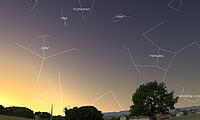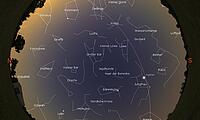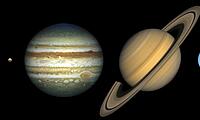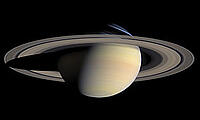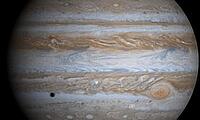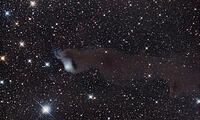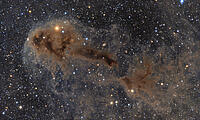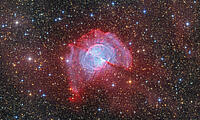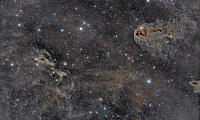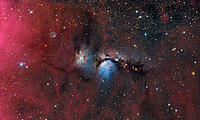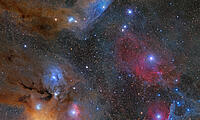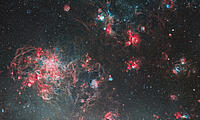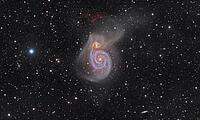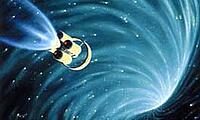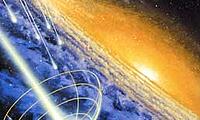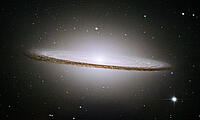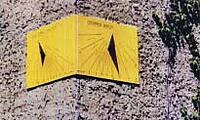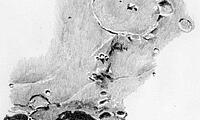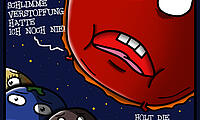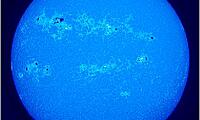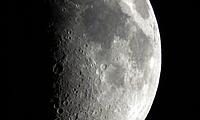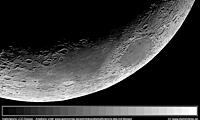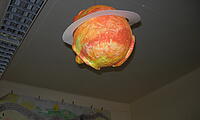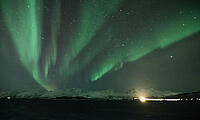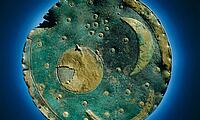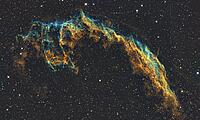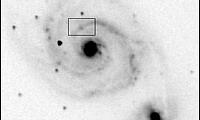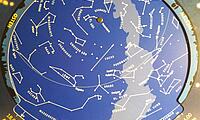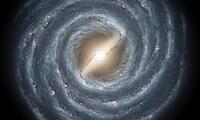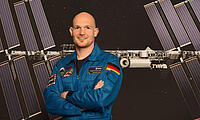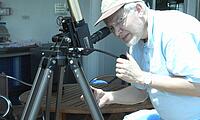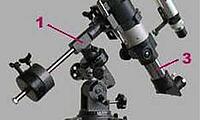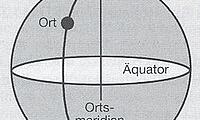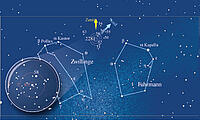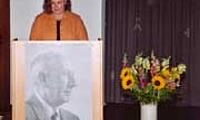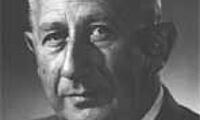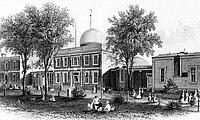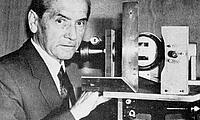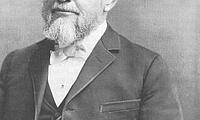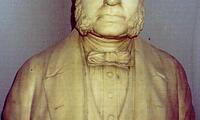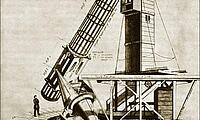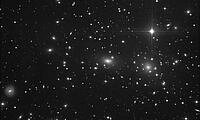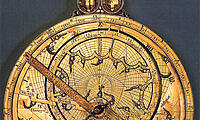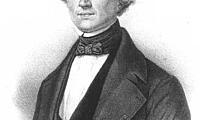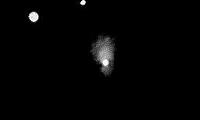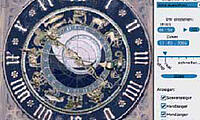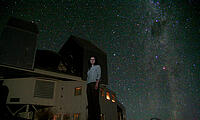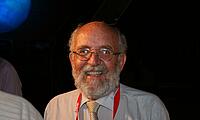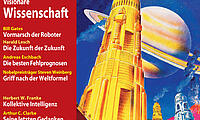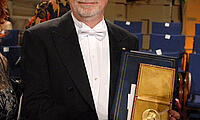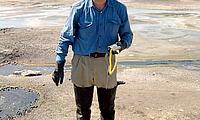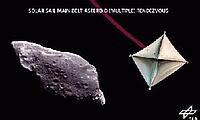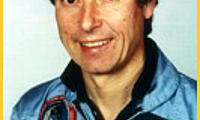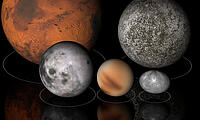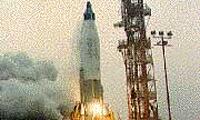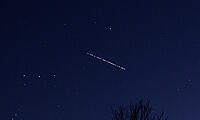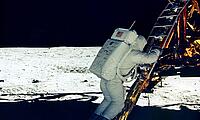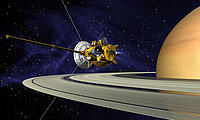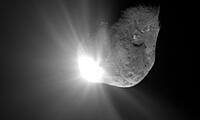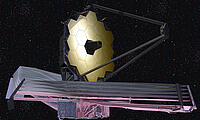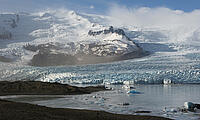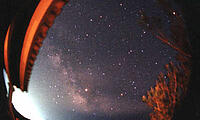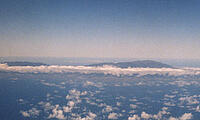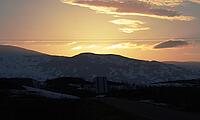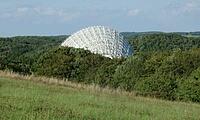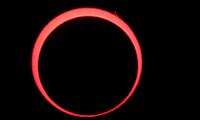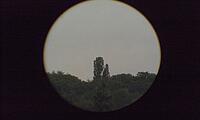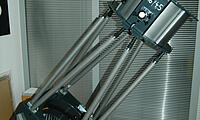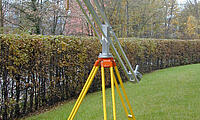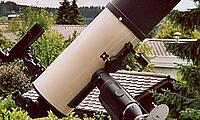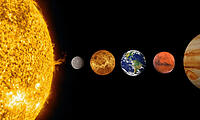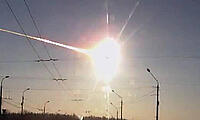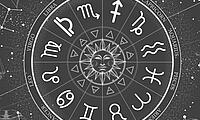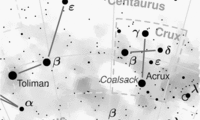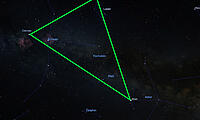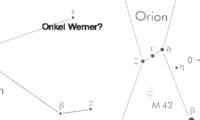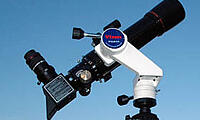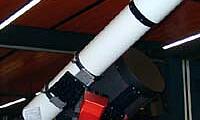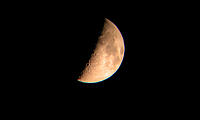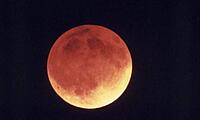"Seeking for earthlike planets" - Interview mit Professor Dr. Michel Mayor
von Dr. Harald Zaun
H. Zaun: After your discovery it must have been an exhausting experience for you to be in the focus of media!
Michel Mayor: I t’s true. It was a very new experience for me. Normally most scientists work all their life without having any direct contact to media.
H. Zaun: How often have you been contacted by journalists since your discovery?
Michel Mayor: Almost every week I’ve several contacts to different journalists. At the beginning I told myself to be patient, because it will stop after a while. But it’s still continuing to no end. Therefore I did stop to count my contacts some time.
H. Zaun: Black Holes, Superstrings, Wormholes – all these technical terms seem to be very popular right now. Do you think that astronomy in general does fascinate people?
Michel Mayor: I don’t believe that general public is really interested in extrasolar planets. They are more interested in the question: Is there life in universe? So probably the question of exobiology is the most fascinating point for people.
H. Zaun: Are you in close contact with scientific astrobiological groups?
Michel Mayor: Yes, I’m part of the "Bioastronomy Commission of the International Astronomical Union". And I’m participating in a few conferences worldwide. This kind of interdisciplinary conferences are very useful to see the problems from different lines and point of views, to learn about other fields and to meet other researchers. For example I will be in Australia next year to join the Bioastronomy 2002-Conference “Life among the Stars”. I like to be in contact with these kind of people.
H. Zaun: is your personal opinion about the SETI-radioastronomers, who seek for extraterrestrial radio signals? Do you think that these kind of projects do make any sense or isn’t the goal to detect a cosmic message in a bottle wasted time and money?
Michel Mayor: This is a very, very difficult question. On one side this people are very serious, because they built very clever and powerful instruments. But we do not have any possibility to estimate the chance of success of this experiment. But if they succeed in their experiments some day the importance of their discovery will be extremely huge. So what’s the product of this tool? It’s a little bit like when you want to earn money you may work like anybody, but you never will become rich. On the other hand you can be sure to receive money at the end of the month. But the SETI people have a very low chance to earn something. Personally I wouldn’t be able to work in such a team. To my mind the chance of success is simply to low to devote many years of work for any kind of SETI-project.
H. Zaun: Did you ever meet Frank Drake?
Michel Mayor: Yes, many times!
H. Zaun: If you had to estimate the potential likelihood of extraterrestrial intelligent life in universe – could you determine it?
Michel Mayor: This is difficult to define in a scientific way. Definitely I would prefer to consider that some kind of intelligent life really does exist. But that is not science; it’s just a personal feeling.
H. Zaun: After your discovery you have been forced by the ‘Nature’ magazine to avoid any contact to the press as long as the article is not published. This procedure is obligatory for on any ‘Nature’ author. The consequence was that the American press reported, two American scientists did discover the first exoplanet. This must have been the most frustrating situation for you in your career.
Michel Mayor: It was not the most frustrating situation. But it’s true that we were a little bit irritated, that all people did comment this fact and discuss about it while we still have been on the embargo from ‘Nature’. That time the situation was a little bit crazy.
H. Zaun: Do you like the term 'planet hunter'?
Michel Mayor: Well, that is okay!
H. Zaun: It looks like Planet planet hunting seems to become a new Olympic discipline. It’s very obvious, that the scientist-crew who discover the first real earth-like-planet will receive the gold medal. When there will be the presentation ceremony? When will scientist discover the first extrasolar planet like Earth? What is you forecast concerning that point?
Michel Mayor: I believe we can be little precise on that fact. The technique we use now has a lot of possibilities to detect massive exoplanets. But we have to wait for new more progressive technique. In my mind the only credible technique to discover earth-like-planets is the 'planet-three-transit' technique, which is the central part of the Eddington-Satellite-Mission. But this mission designed by ESA will probably not launched before 10 years from now. The most important task for future will be to find a planet which is similar to earth. My suggestion is: Maybe in 10 years, probably in 15 years we will detect the first earth-like-planet. I don’t think this could happen sooner.
H. Zaun: How many extrasolar planets have been detected right now? When you look into the internet you’ll find various numbers. Obviously it depends on how often the website is updated. I’ve got the information now that there are 77 Exoplanets registered. Is this correct?
Michel Mayor: The number is often part of the politics – for example to get financial support. All together in our actual list in Geneva we have 77 planets.
H. Zaun: What’s about the financial support for your project?
Michel Mayor: We don’t complain at all. We are very well supported.
H. Zaun: Have your never had the idea to immigrate to the United States?
Michel Mayor: No, certainly not.
H. Zaun: How did the rise of the internet influence your work?
Michel Mayor: At the beginning I was absolutely not interested in the internet for my work. But then I realized I was forced to work with just to keep normal contact to different scientists and many other people. In future we will do some more effort to optimize our website.
H. Zaun: Would your you be able to seek for extrasolar planets without intelligent Hard- and Software?
Michel Mayor: We have a very powerful fast Sun-station. By the way this was probably one reason for our success. In 1995 the chance to detect a exoplanet was very low. The software used by Geoffrey Marcy and Paul Butler was very slow and time-consuming. In comparsion to both of them we would have a look on the results some minutes after the measurements. So this did allow us to repeat the measurement immediately if you noticed something strange.
MICHEL G.E. MAYOR, born on 12 January 1942 in Lausanne, is a Swiss citizen. Full Professor, Department of Astronomy, University of Geneva, and Director of the Geneva Observatory (since 1998). He has taken part in and continues to contribute to the work of the international scientific community, at the European Southern Observatory (ESO, Chile) and at the Observatoire de Haute-Provence (CNRS, France), with stays at Cambridge Observatory (UK) in 1971 and at the University of the Hawaii (in 1994-1995), undertaking work at the Presidency of the Commission on the galactic structure of the International Astronomical Union (IAU) (1988-1991), of the Scientific and Technical Council of the European Southern Observatory (1990-1992) and of the Swiss Society of Astrophysics and Astronomy (1990-1993). Among his recognitions, mention must be made of the 1983 Prize of the Académie Française des Sciences (Prize "Charles-Louis de Saulces de Freycinet"), the discovery of the first extrasolar planet 51 Peg b which was indicated by "Science" among the ten most important discoveries of 1995, the medal of the Commission of Bioastronomy of the International Astronomical Union (IAU) awarded during the 1997 General Assembly of Kyoto, the 1998 Prize Marcel-Benoist awarded by the Swiss Confederation, the 1998 Janssen Prize by the Astronomical Society of France and the 1998 ADION Medal by the Observatory of the Côte d'Azur (Nice, France)
Extrasolare Planeten scheinen im Universum an der Tagesordnung zu sein. 77 dieser Objekte haben die Astronomen bisher gefunden (Stand: Januar 2002), viele davon kreisen um nahe gelegene Sterne. Die meisten von ihnen gleichen Gasriesen wie Jupiter. Einige der bekannten Exoplaneten umrunden ihre Sonne innerhalb der bewohnbaren Zone - und geben damit der Diskussion über Leben im Weltall neue Nahrung.
Der Schweizer Michel Mayor, 59 Jahre, ordentlicher Professor am Institut für Astronomie an der Universität Genf und seit 1998 Direktor des Genfer Observatoriums entdeckte zusammen mit Didier Queloz im Jahr 1995 den ersten extrasolaren Planeten 51 Pegasi b. Diese Entdeckung wurde von „Science" als eine der zehn wichtigsten Entdeckungen des Jahres 1995 bezeichnet.
Michel Mayor ist ständiger Mitarbeiter im Rahmen der Programme des European Southern Observatory in Chile (ESO) und des Observatoriums der Haute-Provence (CNRS, Frankreich). Er förderte die Forschung als Vorsitzender der Kommission der galaktischen Struktur der Internationalen Astronomischen Union (IAU) von 1988 bis 1991 und u.a. der Schweizerischen Gesellschaft für Astrophysik und Astronomie von 1990 bis 1993. Ob es ihm vorbehalten sein wird, den ersten erdähnlichen Planeten zu detektieren steht in den Sternen, welche die Planetenjäger derzeit anvisieren. Die deutsche Übersetzung dieses Interviews wurde in dem Internetmagazin "Telepolis" (www.telepolis.de) veröffentlicht (direkte Link zum Beitrag siehe Ende des Interviews).
Links
- European Southern Observatory in Chile (ESO)
- Liste der bisher detektierten Exoplaneten
- Internationale Astronomischen Union (IAU)
- Science-Magazin
- The Geneva Extrasolar Planet Search Programmes
- Astronomie.de Artikel (H. Zaun): "Wir sind noch weit von der ´zweiten´ Erde entfernt"
Dieses Interview erschien auch auf telepolis.de
Der Autor Dr. Harald Zaun

Harald Zaun (geb. 1962) ist promovierter Historiker und studierter Philosoph mit naturwissenschaftlichem Hintergrund (Universität Köln). Er arbeitet in Köln als freiberuflicher Wissenschaftsautor und Wissenschaftshistoriker und publiziert regelmäßig mit Prof. Dr. Harald Lesch. Der zweifache internationale Bestseller-Autor hat u.a. für die WELT, Süddeutsche Zeitung, Frankfurter Rundschau, Telepolis (Heise-Verlag) u.v.a. geschrieben. Schwerpunkte: Kosmologie, Astrophysik, Raumfahrt, Wissenschaftsgeschichte und primär Astrobiologie-SETI. Sein 2010 erschienenes Buch SETI – Die wissenschaftliche Suche nach außerirdischen Zivilisationen (Heise) wurde von der Max-Planck-Gesellschaft zur Lektüre empfohlen. Sein aktuelles E-Book trägt den Titel First Contact – Spurensuche nach kosmischer Intelligenz und die Gefahren (Heise, 2013). Mitglied der Deutschen Astrobiologische Gesellschaft (DAbG). Sein neues Werk mit Prof. Lesch erscheint 2019 im Bertelsmann-Verlag.
Unser Autor würde sich über einen Besuch seiner privaten Seiten unter www.haraldzaun.de freuen!

